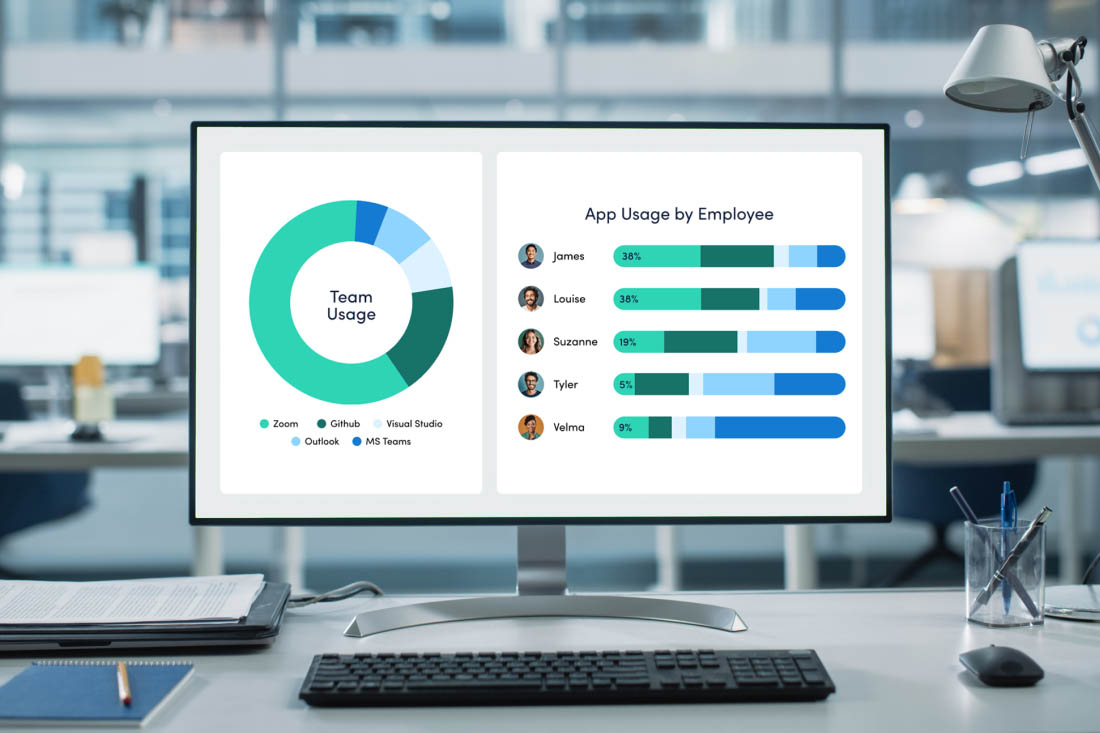With competing priorities and distractions fighting for our attention in the workplace, time management is an increasingly important aspect of productivity for employees and organizations alike. Effective time management allows employees to better prioritize tasks, meet deadlines and achieve goals efficiently. Poor time management can have significant negative impacts, leading to missed deadlines, increased stress levels and decreased overall productivity.
Leaders can help their teams improve their time management skills with tools and systems that can streamline processes and give a boost to productivity. Learn about the importance of time management for employees, plus nine strategies for identifying and addressing time management issues.
The importance of time management
Poor time management can have serious consequences, both for individuals and organizations. When team members are unable to effectively manage their time, they can miss deadlines — causing problems for other team members, lowering customer satisfaction and losing business. According to the National Institute for Occupational Safety and Health (NIOSH), employees who struggle with time management are more likely to experience burnout and have lower productivity levels.
The impact of poor time management
Without effective time management in the workplace, businesses and employees may have to deal with the following consequences:
- Missed deadlines and delayed projects
- Increased stress and pressure
- Reduced productivity and efficiency
- Poor work-life balance
- Decreased job satisfaction and motivation
- Increased absenteeism
- Higher turnover rates
Benefits of efficient time management
On the other hand, effective time management gives numerous benefits to individuals and organizations alike:
- Improved productivity and efficiency
- Better work-life balance
- Reduced stress levels
- Increased job satisfaction and motivation
- Boosted team morale
- Higher quality of work
It’s clear that developing time management skills should be every manager’s priority for creating a more positive work environment, fostering a culture of success and helping employees increase productivity.
Common signs of poor time management
Identifying signs of poor time management helps you determine whether your team members struggle with their time management skills. Things to look for include:
- Missed deadlines or frequently delayed tasks
- Procrastination or last-minute rushes
- Poor task prioritization
- High levels of distractions
- Inability to delegate tasks effectively or ask for help
- Unrealistic time estimates
- Overloaded schedules and overworked employees
- High working hours or overtime
- Skipping breaks or working during free time
- Reduced involvement in meetings or company events
Recognizing these signs may indicate an employee lacks time management skills or is struggling with time management as a result of another underlying issue. For example, an employee may struggle with time management following a change in job responsibilities or while taking on to fill in for a coworker’s absence. Some signs are more obvious than others, but it’s important to watch for them to see if anyone may be struggling and why. Understanding the source of time management issues is crucial for addressing the issue, whether it’s helping employees develop time management skills or providing temporary support.
9 ways to help employees with time management
Once you’ve identified time management issues within your team, it’s important to provide strategies to help struggling employees improve their time management skills. Here are nine time management strategies for employees to help them work more effectively:
1. Monitor productivity to gain insight
Using productivity monitoring tools like ActivTrak helps your teams spot time mismanagement and implement strategies to fix it. Productivity monitoring software can show employees when they’re most productive and where they may be wasting their work time, such as on social media or distracting websites. Employees can use the data to adjust the way they work and refine their personal time management skills, while managers can use the insights to create policies or individualized improvement plans for employees who need support managing their time.
2. Set clear goals and expectations
Clear goals and expectations give employees a sense of direction and purpose. By setting specific, measurable, achievable, relevant and time-bound (SMART) goals, individuals can prioritize their tasks and allocate time accordingly. Regularly reviewing and updating these goals can help ensure employees stay on track and continue improving their time management.
3. Prioritize tasks effectively
Teaching your team members how to prioritize tasks effectively is crucial for effective time management. Encourage them to differentiate between urgent and important tasks and to tack high-priority items first. Techniques such as using to-do lists, the Eisenhower Matrix (Important-Urgent) and the Pomodoro Technique can help team members prioritize and focus. You should also ensure team members are on the same page by having leadership clearly state priorities and communicate the importance of assigned tasks. Employees can also use systems that help them prioritize tasks, such as:
- Tackling the most difficult task first
- Completing similar tasks at the same time
- Using project management tags to schedule tasks based on priority
4. Encourage breaks and downtime
Contrary to popular belief, taking regular breaks can enhance productivity and prevent burnout. Encourage your employees to schedule short breaks in between tasks or engage in activities that help them relax and recharge. This can improve focus, reduce stress levels and enhance overall performance. Employees can set a time limit on each task to make sure they take a break to recharge. Promoting a healthy work-life balance and ensuring team members have time for personal activities and hobbies outside of work can contribute to better time management and job satisfaction. Employees should also know when they should – and can – turn down a task that would damage their ability to focus and complete prioritized work.
5. Provide structure for employees
One surefire way to ensure employees can manage their time effectively is to create an organizational structure that sets them up for success. Cluttered workspaces – both digital and physical – can create distractions and waste time for employees. Provide employees with a system they can use to organize their work, including a policy on file-naming conventions and cloud-based storage systems. You can also encourage desk organization in the office or for remote employees to help them feel less stressed and improve concentration while working.
6. Implement time management training
Formal training can take your team’s time management skills to the next level. Effective time management training includes:
- Principles and techniques: Introduce your team to various time management principles and techniques, such as goal setting, task prioritization and managing distractions.
- Tools and technology: Familiarize your employees with time-tracking software, project management tools and other technologies that can help their time management skills improve.
- Personal development plans: Help individuals identify their strengths and weaknesses in time management and guide them in creating personalized development plans.
7. Provide continuous learning and improvement
Time management skills aren’t static and can be further developed through continuous learning and improvement. Provide your team with resources like books, articles and webinars on time management best practices. Encourage knowledge sharing and create an environment that promotes learning from one another’s experiences.
8. Use technology for better time management
As productivity has increased, time management technology has also improved. Tools like software and apps can significantly improve time management. Time-tracking tools and apps like Toggle, RescueTime and Harvest can help employees monitor and assess how they spend their time. Company-wide platforms like ActivTrak help managers see trends in productivity and distractions to hone in on time management that could use improvement. Project management software like Asana and Trello can help organize tasks, set deadlines and allocate resources effectively.
9. Get and incorporate regular feedback
Ask your employees to talk about their time management struggles and successes openly. Encourage forums where employees can share strategies or problems. Make sure managers are asking employees about their time management in one-on-one meetings and that they’re equipped to help employees who may have poor time management skills improve.
Help employees manage their time more effectively with ActivTrak
Improving time management in the workplace is essential for productivity, job satisfaction and overall organizational success. ActivTrak can help with time management by providing insights about inefficient workflows and distractions that contribute to poor time management. Managers can analyze real-time data to implement changes and improve time management for teams and individuals. Schedule a demo to find out how ActivTrak can help you effectively manage time management at work.





